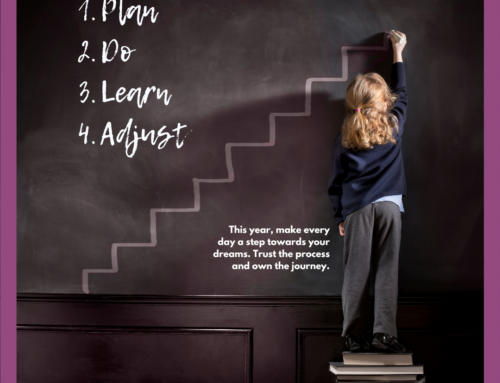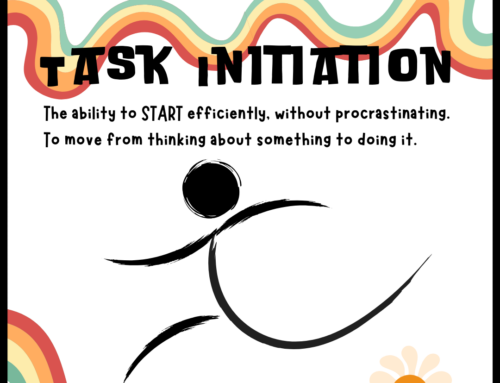It’s May!
Outdoor activities have increased, and we are officially waking from winter slumber in Minnesota. In spite of these delightful beginnings, school year ‘s end can signal a RUSH of stressors to retake tests, turn in missing assignments, and study for finals. Hmm, has your heart started beating a little bit faster?
Fact: Families with ADHD and Executive Function Difficulties experience added stress, higher heart rates, and bigger emotions. What can we do to help support these obstacles? There are many good things!
Your YP team offers 6 of our favorite parent/student brain-based, tried-and-true-tips to HARNESS that extra energy rush into a positive, motivational BOOST —> transforming ADHD stressors into GET-IT-DONE Superpowers!
The great news: these tips work for humans of ALL ages. Whether you are reading this post as a parent to guide your student or as a student to guide yourself, you will find value in the 6 tips below. Pro-tip: you may want to print and take notes on your favorites; we are certain this will make a difference in your ability to finish strong!
Ready to jump in?
You first saw this list of 6 Expert Strategies for Overcoming Lack of Motivation in last week’s blog post, How to Conquer Your Lack of Motivation to Get Things Done. Let’s revisit the list with your end of the year planning strategy in mind.
#1: Celebrate Your Student’s Successes – Large and Small
- Make a list! What wins have you experienced over the past school year?
- What growth have you seen in your parent/student ability to work together to plan?
- What has worked in the past when you’ve had a time crunch?
These questions help build on positive emotion. Students with EF skills deficits respond extremely well to immediate, or positive rewards.
#2: Remove the “Shoulds” or “Supposed Tos” to Focus Instead on the Present
- You already know that the assignment is late or the grade is low. Instead of “what should have been,” pinpoint the obstacles, the root causes in executive function difficulty, so you can overcome them now!
- Use the current deadline to create a visible sense of time now and build a plan for future success.
Push forward past those frustrations or negative feelings; they will only frustrate or overwhelm. Instead, concentrate on the present: what do we have to do now to feel awesome about ending the school year? And even put into place some cool ideas that will help us in the future?
#3: Tap into Your Student’s Creativity (And Yours)
- If your student has a choice in how to create an assignment, ask them how they can best show what they know. Focus on minimum effort (meaning easily done to the best of ability) and maximum impact (earning as many points as possible!) Maybe it’s not the time to build the Hanging Gardens of Babylon (true story for another blog post) but the assignment can still be cool and fulfill the requirements.
- Use what others are doing as a reference, but let your parent/student partnership foster your creativity. What is unique about you, or what unique perspectives can you bring to the assignments?
Thinking about your individuality builds on positive emotion. And we do best with what we feel good about doing!
#4: Give Yourselves Permission to Delegate
- Does your family work with a Yellow Parachute Learning Coach? Call on your coach to help!
- Use your resources to help limit emotional clashes and maximize time and effort. You can even call on a sibling, other family member, neighbor, or teacher at school.
Maybe you can do the planning together, then ask the student who they will “report to” to show each part of the task. This gives perspective, shares the role of supervisor, and can help regulate the emotional baggage for the parent who manages the majority of school responsibility.
#5: Tailor Tasks to Your Student’s Interests
- What activities can be rewards or motivators for your student? Some students plan their work sessions before activities with friends. Other students decide on a snack or screen time as a reward.
- When is your student most focused? Some students plan to work right after they get home from sports practice. Others do their work first thing in the morning, or right before lunch.
Building in physical activity harnesses the endorphins gained – and gets out the extra energy too! Adding in a favorite protein reward also nourishes the brain, which is working hard to do the work.
#6: Turn Your Student’s Boring Tasks into Exciting Games
- How can you turn a boring task into a competition? One YP high school student creatively turned her work-session intervals into a “productivity competition.” She scored each 20 minute work session from 1-5 in how well she achieved her plan, and challenged herself to move higher each time.
- Use a body-double technique to help each other get work done. Break down large assignments into smaller, concrete tasks. Challenge each other to finish at the same time.
Like Mary Poppins’ “Spoon Full of Sugar,” that makes the medicine go down, what are the magic wands you can wave together to make the task more enjoyable, exciting, competitive, or fun?
We hope the ideas on this list inspire and motivate you!
Pretty please, with sugar on top, share what works, because we bet there’s someone out there who you will inspire, too.
Yours in the journey,
Cara
Take the podcast to the trail here!
Join Founder Cara Thorpe on Friday May 5 at 11 am for a webinar on these tips!
Details to follow tomorrow – link will be available here.







